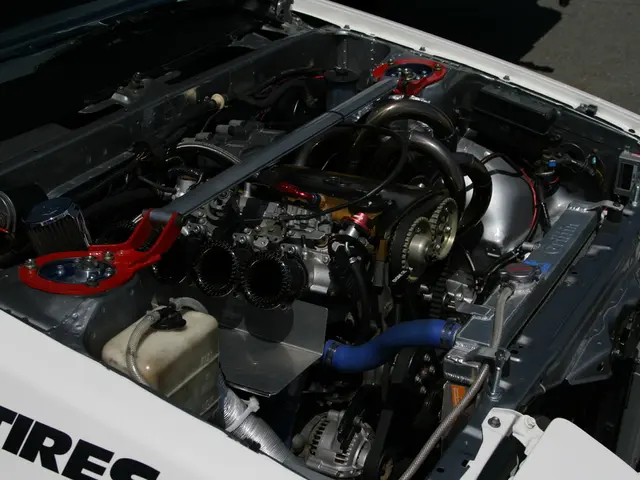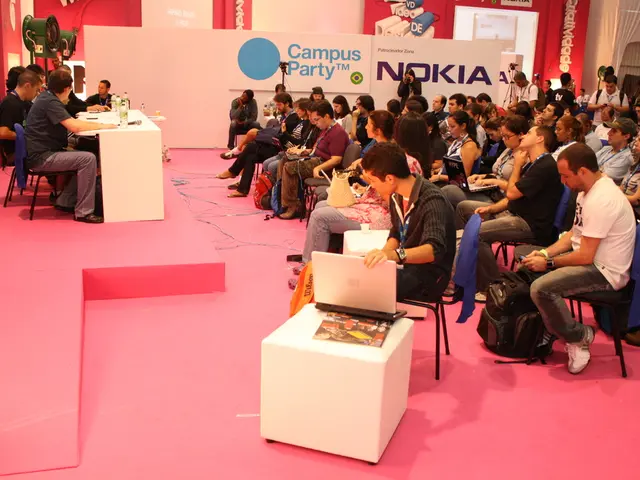Homes increasingly rely on AI for monitoring loved ones and pets, raising the question: should tech firms have such extensive insight into our private lives?
In a world where technology continues to evolve at an unprecedented pace, home technology is following suit. At the recent IFA 2025, some of the biggest names in the industry showcased their latest innovations, aiming to create an AI-assisted home environment.
Leading the charge are tech giants like Samsung, LG, and Miele. With the increasing emphasis on data privacy and security, these companies are proving they can keep personal information safe while offering smart home solutions that streamline daily routines.
Samsung, for instance, has unveiled a new advanced smart home AI system. This system, built on Knox - a security platform trusted by US and German governments - reads into daily habits, spots when a dog is restless, and alerts if an elderly family member may need checking on. The system can also coordinate smart blinds, music, and air conditioning into a single 'off' button, streamlining routines.
The Samsung Bespoke Jet Bot Combo AI Robot Vacuum can alert users about their pets' activity and provide options to automate messages for pet care. Samsung has also introduced AI-powered features such as Samsung Family Care and Samsung Pet Care, which use Galaxy smartphones and the SmartThings App to monitor loved ones' activity and pets' behaviour.
Samsung's new features include a sleep assistant that analyses REM data from a Galaxy Ring or Galaxy Watch8 and recommends optimal bedtimes. The Galaxy Ring, a wearable device, tracks health data such as heart rate and skin temperature, aiding fitness goals and improving sleep quality.
LG has also joined the AI revolution with AI-powered fridge-freezers and washing machines that can predict usage patterns and adjust accordingly. The new fridge-freezer pre-cools food in advance based on typical opening times, ensuring freshness. LG's best washing machines and dryers sense fabrics and soil levels for optimal washing.
Miele has launched a new AI-enabled dishwasher with diagnostics for common faults, reducing the need for technician visits. The company has also ventured into connected cookware, with sensors and Bluetooth technology regulating temperature and preventing spills.
The future of home technology is not just about physical tasks; it's about mental ones too. These innovations signal a shift towards adaptive home appliances that perform mental tasks in addition to physical ones.
Third-party devices are protected as all information passing through the Samsung hub is encrypted and converted into Samsung's own coding for protection. Knox Vault stores sensitive data on an isolated chip rather than in the cloud, and Knox Matrix uses blockchain to detect and contain threats across a connected home.
The Galaxy Tab can serve as a central smart hub for AI and smart home functions, usable by the whole family. Knox is installed on every Samsung smart device by default, offering an 'ecosystem of security' alongside convenience.
Roborock announced a new 4-in-1 cleaning system designed to adapt to home environments. At IFA 2025, brands such as Dreame, MOVA, TCL, Hisense, Midea, Tineco, and UGREEN presented AI-supported smart home solutions, including AI-powered household appliances, cleaning robots, energy management, intelligent displays, and integrated charging and storage products.
In conclusion, the future of home technology is exciting and promising. With AI being implemented into every facet of our lives, from the best robot vacuums to fridge-freezers that can learn daily schedules, our homes are becoming smarter, safer, and more efficient.
Read also:
- Understanding Hemorrhagic Gastroenteritis: Key Facts
- Trump's Policies: Tariffs, AI, Surveillance, and Possible Martial Law
- Expanded Community Health Involvement by CK Birla Hospitals, Jaipur, Maintained Through Consistent Outreach Programs Across Rajasthan
- Abdominal Fat Accumulation: Causes and Strategies for Reduction








